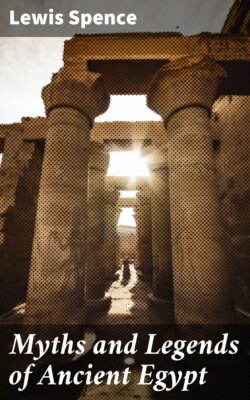Читать книгу Myths and Legends of Ancient Egypt - Lewis Spence - Страница 29
На сайте Литреса книга снята с продажи.
Life and Law in Ancient Egypt
ОглавлениеThe existence of Egypt as a native monarchy stretched over such an extended period that it is extremely difficult to generalize concerning the method of its government or the life of its people. At the same time no civilization with a record of thousands of years behind it exhibits less change either in political or domestic affairs. It is certain that once an agricultural mode of life was accepted by the Egyptians they quickly contracted those manners and customs which they retained up to the period of foreign invasion; and so far as the lower classes are concerned, there can be little doubt that the stream of daily life flowed on from century to century placid and unaltered. The science of folklore has of late years proved to us how little alteration the passage of time brings to the life and thought of a people whose environment is such that outward forces are seldom brought to bear upon them. Especially was this the case with the inhabitants of the Nile valley, who for many centuries were sheltered by geographical and other peculiarities from the inroads of other civilized races, and who by the time that foreign invaders mingled with them had attained such a settled course of existence, and were so powerfully influenced by tradition, as to be practically immune from the effects of racial intermixture. It must also be borne in mind that such invaders as Egypt knew would not bring their womankind with them, and that their marriage to Egyptian women would have the effect in a generation or two of completely absorbing them into the native population, so that the racial standard remained practically unaltered. Again, their numbers would be relatively small compared with the population of Egypt. The environment of the Nile valley is exceptionally well suited to the continuance of type, as is evidenced by the persistence of form in its domestic and other animals. Time and again have foreign sheep, goats, asses, and so forth been introduced into it, with the result that shortly afterward they became absorbed into the prevailing Egyptian type of their kind, with scarcely any modification. The horse and the camel were comparatively late importations into Egypt, and the tardy introduction of the former is eloquent of the isolated character of the country.
The feudal system was general throughout ancient Egypt, and the Pharaoh was chiefly employed in keeping his greater subjects in check. These modelled their principalities upon the central power, and even such as had no claim to royal blood kept up establishments of considerable magnitude. Officials swarmed in the Nile valley, and it does not seem that they were actuated by a very high standard of political morality, or, at least in practice, they fell short of it. Members of the royal family were generally granted high office, and this meant that the country was in effect administered by an hereditary bureaucracy. A chancellor or vizier was directly responsible to the monarch for the condition of the country—its business, finance, and legal administration.
Scene representing the driving of a large herd of cattle on an Egyptian farm From a Tomb at Thebes, XVIIIth Dynasty
Reproduced by Permission from "Wall Decorations of Egyptian Tombs,"
published by the Trustees of the British Museum—
